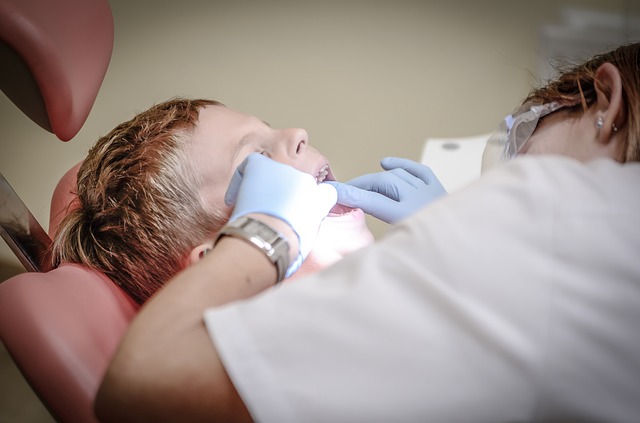 YES. And many other things as well.
YES. And many other things as well.
Anything that impacts the jaw, abnormal movements can contribute to a TMJ problem becoming symptomatic. All common dental procedures place the jaw joint in a certain degree of hyper-extension (wide open) for periods of time. It’s the only way Dentists can treat decay, gum disease, and perform mouth surgery.
When we open our mouth, the jaw joints slide on a cartilage disc that cushions the joint and separates the joint from the socket during normal movement. When the jaw is held wide open for several minutes without movement, the cartilage “disc” begins to lose some of its lubricating fluid from the pressure, like pressing down on a sponge soaked with water will squeeze water out of the sponge. If the disc has any damage or loose ligaments, it can momentarily “stick” to the bone when the mouth is closed because of the loss of fluid. When this happens, it can sprain or strain the ligaments holding the disc in place, causing the jaw to “click” when you move it.
In many cases the ligaments heal and the TMJ goes back to “normal”. In some cases, the ligaments can’t repair and the disc continues to shift around; causing more ligament stretching and disc trauma. Eventually the unstable disc will start interfering with your jaw movement and cause muscles to become painful and in spasm. As this progresses, it becomes harder to open your mouth and your bite may feel different.
After wisdom tooth surgery, there is typically some joint discomfort, swelling from the surgery, and muscle soreness; all typical of wisdom tooth removal. Muscle spasms can limit your mouth opening for a short time but should resolve in a week or two as you recover. This is normal.
If your mouth /jaw doesn’t return to normal opening (about 4 fingers width), or clicking and locking are occurring, it’s possible that your TMJ will require some treatment to help it recover and return to normal. Check with your dentist and let them evaluate it. They might suggest additional rest or self-care for a short time. If you don’t feel back to normal after 3-4 weeks, it’s possible the cartilage cannot “get back in place” and an evaluation by a TMJ specialist should be done to determine the options for non-surgical management. As with any injured joint, the sooner rehabilitative care is begun, the better and more stable the outcome.



